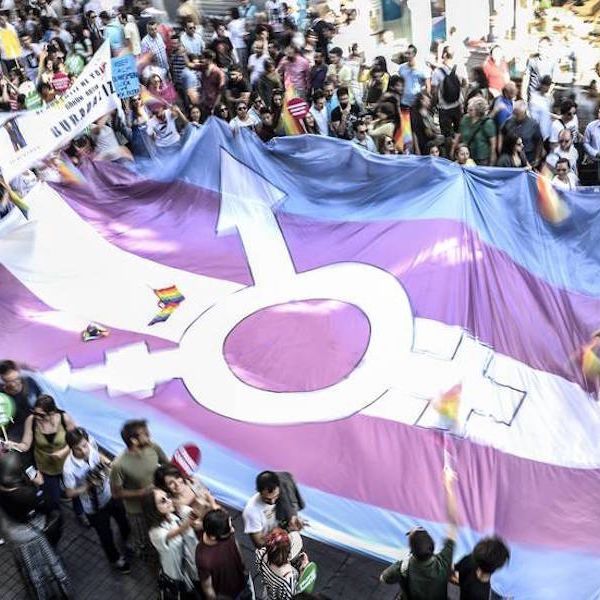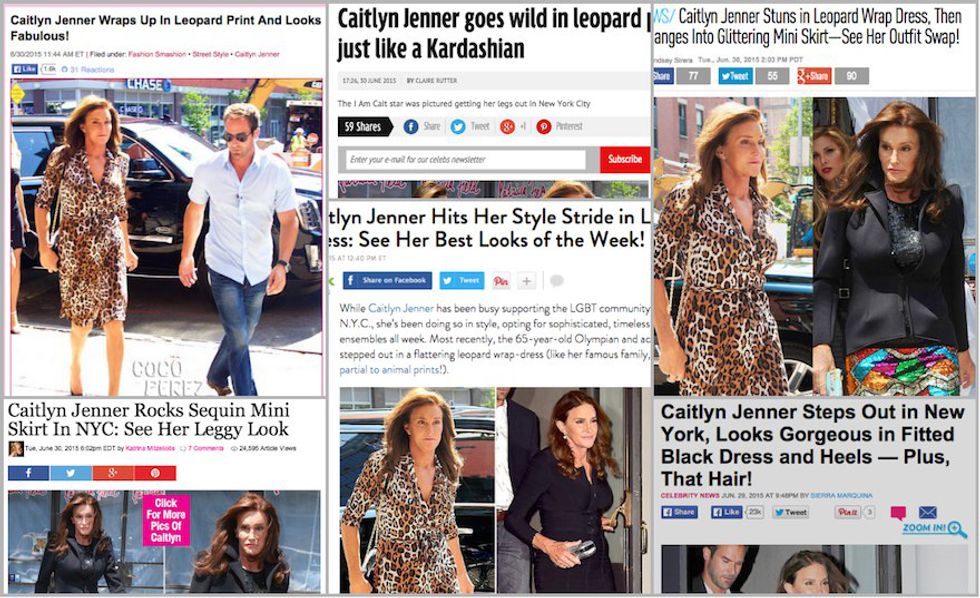Wednesday night, the ESPYs, an award show by ESPN that honors the best athletes of the year, was held in Los Angeles. Every year the ESPYs honor an athlete with the Arthur Ashe Award of Courage for “possessing strength in the face of adversity, courage in the face of peril and the willingness to stand up for their beliefs no matter what the cost.” This year, former Olympic decathlon winner and gold medalist, Caitlyn Jenner, was its recipient.
Jenner received the award in front of her peers, family and millions of viewers as her truest self after publicly announcing her male-to-female transition last April. Jenner's speech brought many to tears and maybe made others uncomfortable. However, despite the opinions in the room, she taught us some valuable information based on irrefutable facts. The following are three important points to take away from her speech.
1. Assuming a new identity means embracing everything that comes with it, good and bad.
Jenner started her speech by joking about the pressure of transitioning into a woman. “Picking out this outfit — OK, girls, I
get it! You’ve got to get the shoes, the hair, the makeup, the whole
process — it was exhausting. And next, the fashion police — please be kind on
me, I’m new at this.” Whether intentional or not, she raised an important point
about what it means to be a woman in a patriarchal society. In the last couple
of months, Jenner has been the subject of multiple reports judging her
appearance and fashion choices.
Although the "I am Cait" star's spotlight is accredited to more than her athletic abilities, the sports industry, like Hollywood, is known to objectify women. For example, the incessant talk about Serena Williams' body and the judgement of her femininity, or reported lack thereof, despite her successful career in tennis. Because a woman's worth is heavily attributed to her image, the expectation to assume proper gender roles is always present.
"Orange is the New Black" star Laverne Cox educated us on a
problem specific to transgender women when Jenner's Vanity
Fair cover was released. Cox acknowledged how great Jenner looked, but took the opportunity
to talk about the privilege they share to transition and meet their new
standards. “I am able to
embody certain cisnormative beauty standards. Now, there are many trans folks
because of genetics and/or lack of material access who will never be able to
embody these standards." If Jenner had announced that she identified as a woman, but had refrained from making the transition, her credibility would have been
put to the test. It is important to realize that an identity is not always visible. After all, Jenner admitted to having felt like a woman way
before making the decision to transition.
2. Transgender
issues demand our immediate attention.
Jenner continued
her speech expressing how eye-opening her experience has been. “All across this
country, right now, all across the world, at this very moment, there are young
people coming to terms with being transgender." But, also shared the cold truth. “They’re getting bullied, they’re getting beaten up, they’re getting murdered
and they’re committing suicide ... they are the reality of what it is like to be
trans today.”
The National Center for Transgender Equality conducted a survey with more than 6,000 participants that identified as transgender or gender non-conforming and results show that while in school, 78 percent reported harassment, 35 percent reported physical assault, and 12 percent reported sexual violence. Other alarming results included 41 percent of respondents having attempted suicide with sexual assault and physical assault as the two principal reasons behind the attempt. Jenner included the stories of 17-year-old Mercedes Williamson, “a transgender young woman of color, [who] was found in a field in Mississippi stabbed to death,” and Sam Taub, “a 15-year-old transgender young man from Bloomfield, Michigan. In early April, Sam took his own life." These stories, and many more, have received little to no attention from the media. This issue evidently matters and can no longer be ignored.
3. Despite
minimal trans-awareness efforts conducted by major public figures, the
transgender fight is just beginning.
For every public
figure dedicating time and effort to the trans movement like Laverne Cox and
Chaz Bono, who support Caitlyn Jenner, there is an extensive list of
public figures that have spoken against her. Perhaps, one of the trans community's
biggest recognitions has come from
President Obama, who became the first
president to acknowledge trans individuals when he asked for the protection of
the LGBT community's rights in a State of the Union speech in January. Obama supported the banning of conversion therapy, a treatment that aims to
treat a patient's sexual orientation and gender identity as a mental illness
with aversive techniques.
Because so little attention has been given to this movement, Jenner speaks about the importance of educating ourselves. “How do we start? We start with education. I was fortunate enough to meet Arthur Ashe a few times, and I know how important education was to him. Learn as much as you can about another person to understand them better." Education is the foundation of change; we must not forget that it is only the first step.
Caitlyn Jenner demonstrated why she was worthy and deserving of her award. It was a great victory for her, but more importantly, a greater victory for the transgender community who she paid tribute to in her speech. Jenner took advantage of her award to share how difficult her transgender experience has been, and to shed light on the struggle the average trans individual faces every day. There is a long way to go, but she got us a step closer to where we need to be.






















